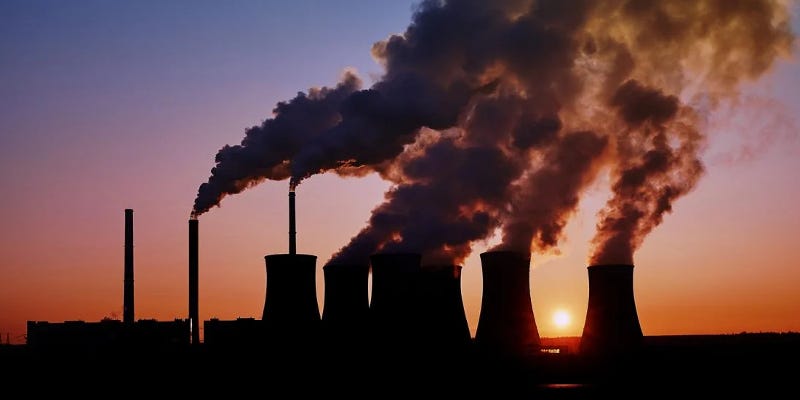Fossil fuels and COP26: The Glasgow climate debacle, part 2
The COP26 cover decision calls on governments to accelerate “efforts towards the . . . phase-out of inefficient fossil fuel subsidies”. This is the first time that fossil fuels have ever been mentioned in a UNFCCC text. But the action that COP26 is asking governments to carry out is inadequate to address the climate crisis.
Removing fossil fuel subsidies makes sense. As Laurie van der Burg at Oil Change International points out,
“Ending government support for fossil fuels is a no-brainer. Globally, governments are still propping up fossil fuels with huge sums of public money, behaviour that is incompatible with keeping global warming below 1.5°C.”
Former Organisation for Economic Co-operation and Development Secretary-General Angel Gurría echoes Oil Change International when he says, “Subsidising fossil fuels is an inefficient use of public money and serves to worsen greenhouse emissions and air pollution.”
And John Kerry, the US special envoy for climate change describes fossil fuel subsidies as the “definition of insanity”.
So, including a phase-out of fossil fuels subsidies in a COP text is long overdue and should be welcomed.
But the COP26 decision gives no deadline for removing fossil fuel subsidies.
The word “inefficient” in the text runs the risk that any government can argue that its hand outs to fossil fuel corporations are acceptable because they are efficient. In the context of the climate crisis any talk of “efficient” subsidies for the fossil fuel industry makes no sense whatsoever.
And the decision is not-binding. There is no recourse if governments simply ignore COP26’s request and continue to subsidise fossil fuels.
How big are fossil fuels subsidies?
“Globally, fossil fuel subsidies were $5.9 trillion in 2020 or about 6.8 percent of GDP and are expected to rise to 7.4 percent of GDP in 2025,” according to the International Monetary Fund.
The biggest subsidiser is China, followed by the US, Russia, India, and the EU.
The IMF found that the biggest subsidy came in the form of “underpricing for local air pollution costs”, accounting for 42% of the total. The costs of the climate crisis accounted for 29%, other local factors such as congestion and road accidents came to 15%, explicit subsidies 8%, and lost consumption taxes 6%.
The amount of fossil fuel subsidies depends on the assumptions behind the calculations. Including air pollution and climate crisis costs significantly bumps up the figures.
The OECD calculates that the world spends US$423 billion each year on fossil fuel subsidies.
And a 2020 report by the International Institute for Sustainable Development, Overseas Development Institute, and Oil Change International estimated subsidies from G20 countries averaged US$584 million per year between 2017 and 2019.
Getting rid of fossil fuel subsidies
In 2009, the G20 governments agreed to phase out “inefficient fossil fuel subsidies”. But it did so without defining what this phrase means. The G7 governments have committed to phase out “inefficient” fossil fuel subsidies by 2025.
The UK government argues that it has no fossil fuel subsidies to remove. Yet IISD, ODI, and Oil Change International calculate that the UK gave US$16 billion a year on average between 2017 and 2019. A 2019 report by the European Commission came up with a similar figure.
“They reject the idea that they have any inefficient fossil-fuel subsidies,” Angela Picciariello, senior research officer in climate and sustainability at the Overseas Development Institute, told Nature.
When Caroline Lucas, Green MP for Brighton Pavillion, asked Boris Johnson, UK Prime Minister, whether he would request a review of domestic fossil fuel subsidies with a view of phasing them out as soon as possible, Johnson avoided answering the question.
Removing fossil fuel subsidies can cause problems. IISD highlights three examples:
In 2019, when Ecuador increased fuel taxes, it led to 12 days of protests until subsidies were reintroduced.
In 2018, France’s attempt to increase fuel taxes led to the gilets jaunes movement.
In 2017, when Mexico hiked diesel and petrol prices by 20% protesters blockaded highways, looted shops, and closed down service stations across the country.
IISD notes that there are also success stories in the Philippines, Indonesia, Ghana, and Morocco, of combining subsidy reforms with social safety net policies.
Beyond Oil and Gas Alliance
The solution to the climate crisis is to leave fossil fuels in the ground. After almost three decades of talking the UNFCCC has mentioned fossil fuels, but why phase out subsidies rather than phasing out fossil fuels?
During COP26, Denmark and Costa Rica launched the Beyond Oil and Gas Alliance. Oil Change International describes the Alliance as “a world first … the first diplomatic initiative acknowledging the need for governments to manage the phase out of fossil fuel production as a key tool to address the climate crisis”.
So far, a total of eight countries have committed to ending “new concessions, licensing or leasing rounds for oil and gas production and exploration and to set a Paris-aligned date for ending oil and gas production and exploration on the territory over which they have jurisdiction”. While the Alliance is still small it does represent genuine action. The UK, despite being host to COP26, did not join the Alliance.





